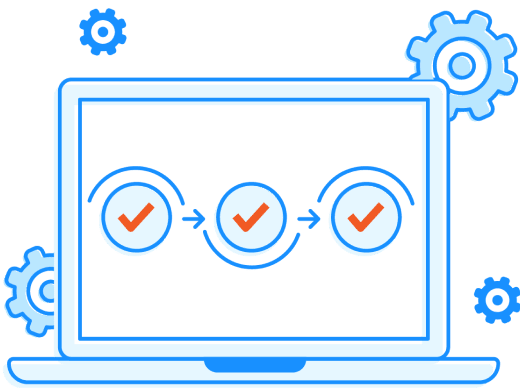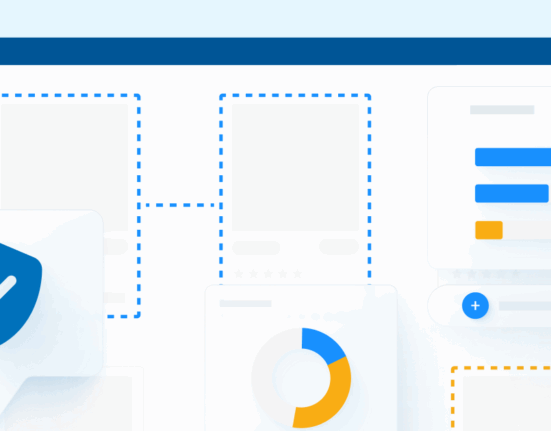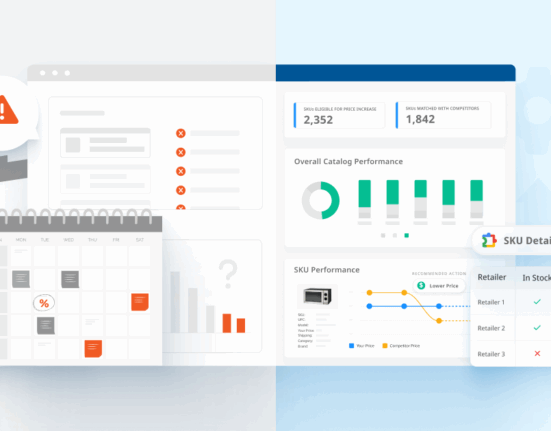Effectively monitoring and executing promotional strategies is critical to your bottom line. Understanding how your promotions perform in real time can provide a wealth of insights, allowing you to optimize your strategies and gain a competitive edge.
This goes beyond simply tracking sales data; it’s about comprehending the entire promotional ecosystem, with factors including competitor activities, market trends, and customer behavior.
Established businesses, with such a wide range of products and promotions, often face unique challenges in executing and monitoring their promotions effectively. The sheer volume and scope of data that needs to be analyzed can be overwhelming, and without the right tools and strategies, critical insights could be missed.
Investing in robust, data-driven strategies to monitor promotion execution can deliver significant benefits. It enables businesses to measure the impact of their promotions, identify successful tactics, and adjust strategies in real time based on evidence, not just intuition.
The Indispensable Role of Monitoring in Promotion Execution
Monitoring plays a pivotal role in promotion execution. It enables brands to gauge the effectiveness of their promotional strategies and make necessary adjustments to their promotion plans to optimize results. Key benefits include:
- Real-Time Feedback: Monitoring provides real-time insights into how a promotion is performing. This allows for immediate course correction if a promotion is not meeting its objectives, thereby minimizing potential losses.
- Data-Driven Decision Making: By tracking key performance indicators (KPIs), monitoring transforms raw data into actionable insights. These insights inform future promotional strategies, fostering a culture of data-driven-decision making.
- Understanding Target Audience: Monitoring your promotions helps in identifying audience behavior and preferences. This understanding enables brands to design more targeted and effective promotional campaigns.
- Post-Campaign Analysis: Post-promotion monitoring offers valuable insights into what worked and what didn’t. These learnings can be used to improve future promotions, ensuring continual improvement and maximizing return on investment (ROI).
In essence, monitoring is the compass that guides promotional activities, ensuring they stay on course to deliver the desired impact.
The Downfalls of Inadequate Monitoring
When it comes to planning and executing promotional strategies, the negative impact of inadequate monitoring can be significant. Failing to accurately track the impact and outcomes of promotional activities can lead to missed opportunities, inefficient resource allocation, and the potential of falling behind in market trends.
A key downfall of insufficient monitoring is not being able to accurately gauge the effectiveness of a promotion. Without proper analysis and evaluation, companies cannot ascertain whether their promotional strategies are reaching the target audience as intended or generating the desired response. This lack of feedback loop can result in continued investment in ineffective strategies, draining resources and potentially causing damage to the brand’s reputation.
Moreover, inadequate monitoring can lead to misalignment between promotions and the overarching company business objectives. If the outcomes of promotional activities are not monitored and adjusted in real time, companies may struggle to keep pace with changing market dynamics, customer preferences, or competitor actions.
Companies that implement meticulous tracking mechanisms can optimize their promotional efforts, leading to superior market positioning and enhanced customer engagement.
Strategies for Effective Promotion Execution Monitoring
Effective promotional monitoring is crucial for ensuring the success of your marketing strategies. There are various strategies that can provide valuable insights, enhance marketing outcomes, and contribute to superior brand performance. Such as:
Strategy No. 1: Defining Clear & Measurable Objectives
The effectiveness of any monitoring strategy is often defined by the goals it seeks to achieve. Establishing SMART (Specific, Measurable, Achievable, Relevant, Time-bound) goals is a crucial step in this process. These goals give direction to your monitoring strategy, providing a clear path towards success.
SMART goals are not just aspirational targets but are quantifiable and time-bound objectives that can be realistically achieved. They enable businesses to measure progress, track effectiveness and compliance, and identify areas for improvement. By creating a clear roadmap for success, SMART goals pave the way for an organized, efficient, and outcome-driven monitoring strategy.
Strategy No. 2: Implementing Data-Driven Tracking
Incorporating cutting-edge technology in your monitoring strategy can significantly enhance its efficiency and accuracy. Advanced data analytics tools offer real-time tracking capabilities, enabling businesses to monitor their promotional execution as it unfolds. This instantaneous nature of data tracking allows for immediate detection of discrepancies or roadblocks, swift corrective action, and ensures the smooth running of your promotional activities.
Furthermore, the use of technology in monitoring provides valuable insights into customer behavior and preferences, allowing brands to refine their promotional strategies for optimal impact. In essence, the integration of technology into your monitoring process paves the way for an agile, data-driven approach to promotion execution, maximizing your business’s competitive advantage.
Strategy No. 3: Regular Feedback & Adjustment
Consistent customer feedback plays a crucial role in the successful monitoring of promotions. This feedback provides valuable insights into the effectiveness of your promotional strategies, revealing what’s working and where improvements can be made. Regularly seeking and analyzing feedback allows businesses to better understand their customers, adjust strategies in real-time, and improve future promotional initiatives.
The result is more targeted and effective promotions that resonate with your audience and drive business growth. In effect, consistent feedback forms the backbone of an informed, adaptable, and outcome-driven monitoring strategy.
Real Life Examples of Successful Promotion Monitoring Strategies
Successful brands share a common trait: they effectively execute and monitor their promotional strategies. For example:
- Real-time Analytics: Companies like Amazon and Spotify have successfully leveraged real-time analytics to monitor promotional activities. They use advanced algorithms and AI to instantly process enormous amounts of data and provide insights on campaign performance, customer behavior, and market trends.
- AI and Machine Learning: Netflix has revolutionized content promotion with AI and machine learning. Their recommendation engine monitors user behavior and adjusts promotional content accordingly, providing a personalized and engaging experience for each user.
- Feedback Mechanisms: Starbucks has seen significant success with its customer feedback strategy. They have developed mechanisms for collecting feedback during promotions, allowing them to fine-tune their strategies in real time and maximize their impact.
Ensuring the Effectiveness of Your Promotions
Effective promotion monitoring is a decisive factor in amplifying the impact of any marketing strategy. Companies that implement meticulous tracking mechanisms can optimize their promotional efforts, leading to superior market positioning and enhanced customer engagement. Not only does this enable businesses and retailers to stay attuned to market trends, but it also provides them with leverage to quickly adapt to evolving consumer preferences.
Adopting advanced technological tools for monitoring promotional strategies augments decision-making processes. It empowers companies with real-time insights into the performance of their promotional initiatives, facilitating prompt and informed actions. The result? A robust and resilient marketing framework that aligns perfectly with a dynamic business landscape.
It’s essential to remember that the efficacy of a promotion strategy largely depends on how well it’s monitored and evaluated. A well-executed promotional strategy fosters revenue growth, boosts brand awareness, and fortifies customer loyalty. Equally important is the continual refinement of these strategies, underpinned by an ongoing commitment to understand and respond to the ever-evolving retail environment.









